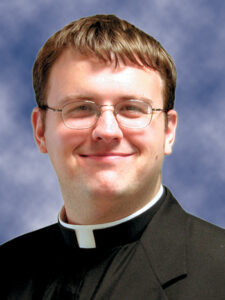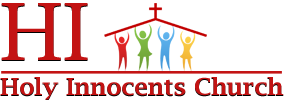 Dear Parishioners,
Dear Parishioners,
Thank you to the Extraordinary Ministers of Holy Communion for cooperating with the changes I made last week. Even though it is not a huge difference time-wise to approach the altar after the priest receives communion rather than for the Lamb of God, I think there is a great spiritual benefit to do what the Church asks us to instead of what is most convenient for us to do. Over time, I hope you see why I think this will add to the reverence of our liturgy.
On a related note, some have asked me: “Why don’t you call the Extraordinary Ministers of Holy Communion ‘Eucharistic Ministers?'” The simple answer is that “Eucharist Minister” means “priest” in the Catholic Church. (One can see this term being used properly in Canon Law and Redemptionis Sacramentum.) In other denominations, such as the Episcopal Church they use the term “Eucharistic Minister” to denote lay people who bring communion to the sick. Borrowing a term from another denomination with a different ecclesiology (how they understand the role of the Church and her members) is problematic especially if it undermines the role of the ordained priesthood. The priest’s relationship with the Eucharist is different than a lay person because during Mass the priest represents Christ (in persona Christi) and he can offer the sacrifice of the mass making ordinary bread and wine into the body and blood of Christ.
An Extraordinary Minister’s role is extraordinary because a lay person is acting in the role of ordained clergy when he or she is distributing communion. The distribution of communion is a role that properly belongs to the Ordinary Ministers of Holy Communion: the bishops, priests and deacons. The Church allows for lay people to distribute communion at Mass and bring it to the sick because there is a lack of clergy available to meet the needs of the people of the Church. That is why at Masses where there are enough deacons and priests to distribute communion, it would be improper for a lay person to distribute communion.
I do not undermine the role of those lay people that wish to engage in this ministry. I think it is wonderful that they wish to serve the Church, be available to those in need, and to assist where there is a lack of clergy. But, it is still an extraordinary function even if we see it every week at Mass. The words “Extraordinary Minister” should remind us of the great need our Church has for priests and deacons and in the meantime make us glad that we have lay people who generously give their time and fill in when needed.
Peace,
Fr. Carter



